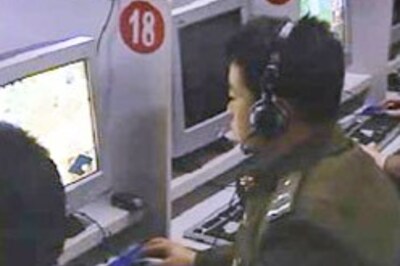
views
Think of a finance professional without a degree in financial risk management, a company executive lacking a certificate to prove his ‘mastery’ over business administration, a teacher who has not done Bachelor of Education (BEd) or Teachers’ Training Certificate (TTC) course. Chances are that such individuals will not be too successful in their professions. Indeed, with the burgeoning scale and complexity of jobs, especially in the present scenario, specialised training has become all the more necessary to produce the best results.
However, an area in which specialised training is yet to be strongly established is the administration of educational institutions. School and college administrators are often chosen from among the faculty members, but there is hardly any guarantee that an expert teacher would also be a great administrator. This may create a bad administrator and we may end up losing a good teacher which ultimately results in a waste of human resources and valuable time.
In the past five to seven years, professional courses in school management, like postgraduate diplomas or bachelor’s and master’s degrees, have gained traction. However, while courses in administration and management of educational institutions are offered by some institutes here and there, the fact remains that frontline schools and colleges, employing scores of teachers and non-teaching staff and having hundreds of students, still don’t find it mandatory to possess certified and skilled administrative and management personnel. This belies logic, especially considering the extent to which education and education management have evolved since ancient times.
When gurukuls were the highest teaching institutions, there used to be a single learned educator in charge of everything. There were no sharp contours between teaching students and managing them. However, with time and the evolution of the education system, teaching is no longer the ultimate and only tool for running an educational institution effortlessly. Today, tasks like managing the students, managing stakeholders, handling the finances of the institution, and much more have increasingly become imperative. So, running a school in the present day is a completely different ball game. As a result, today, no single person can be at the helm of every affair of a school or college. Managing a school and teaching in a school are two very different activities. Just like an expert Economics teacher may not be very well-versed in Geography, a good Mathematics teacher may not be very well-acquainted with managing the funds of the school.
In recent times, it has become crucial for school and college administrators to understand child and parent psychologies and address newer stresses and strains that keep on surfacing. For instance, the Covid pandemic and the resultant shift from physical to digital mode of teaching came with issues that have not been encountered before. How are we going to deal with children who were left with a lot of pent-up energy as a result of being forced to be cooped up indoors in order to save themselves from the virus? Moreover, as far as older students are concerned, the ability to access the internet with a mere click of a button has not only opened up vistas that could only be dreamt of even a few years back, but it has exposed them to violence, carnality, immorality, and substance abuse like never before and to an extent that one would shudder, even thinking of it. These have had terrible effects on impressionable minds. Staying indoors for extended periods as a result of the Covid-induced lockdowns often resulted in binge-watching on TV and online and an addiction to the internet among the youths. These have had their share of negative consequences.
What is the ideal way to deal with problems like these? Would general counselling sessions for students, or addressing student issues on a case-by-case basis help? These are some of the decisions that school administrators should ponder.
The management of an educational institution also has the critical function of tracking staff productivity. This can be done in terms of skill and involvement. Accordingly, there may be four categories of employees: those that are highly skilled as well as involved, those that have all the necessary skills but lack involvement in their job, those that are a little short on skill but not on enthusiasm, and finally, those that neither have the skills to produce good results nor the drive to succeed. Employees in the first group have to be duly encouraged and rewarded to keep them motivated. It would also be the aim of the management to bring more and more employees into the first category by giving greater responsibilities and organising adequate training. Similarly, the management of funds, management of trustee board members, time management, conduct management, curriculum management, relationship management (with trustees, teachers, students and parents), managing the brand image of the institution, marketing, social media management and dealing with local civic bodies and politicians are part of the job description of school/college administrators. The management of an educational institution also has to decide the scale of technology it must adopt to aid teaching processes. This essentially has to be at par with the financial wherewithal of the institution and needs to be in sync with students’ needs.
To conclude, it is implied that to handle the myriad functions of a school administrator, years of teaching experience are crucial but not paramount. Like other sectors, a professional and specialised course must be made mandatory for principals, head teachers and all others serving and engaged in managing educational institutions in whatever capacity so that they can function at full tilt.
Kakali Bagchi is Vice Principal of Hariyana Vidya Mandir, a CBSE school in Kolkata. She has authored 11 books on Mathematics and is the winner of the prestigious CBSE Teachers’ Award for Excellence. Views expressed are personal.















Comments
0 comment